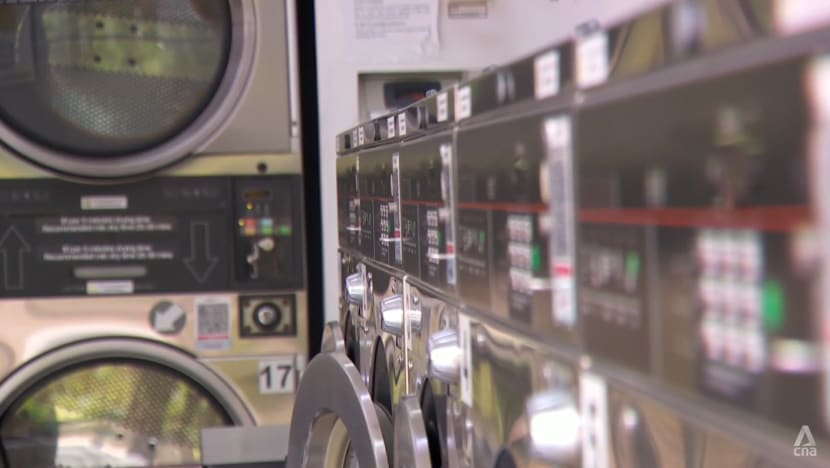Firms try to reduce water usage amid challenges like commercial considerations, space constraints
At least 60 per cent of companies in the industrial sector have put in some form of water recycling measure.

Space constraints are among the problems firms face in implementing water recycling efforts.
SINGAPORE: Boon's Carwash uses about 500,000 litres of water each month - enough to fill one-fifth of a swimming pool.
The firm in Sin Ming Lane already uses high pressure and stronger chemicals to reduce water consumption, leading to a decrease of 10 per cent in usage.
But with water prices set to rise, it is looking to do more.
“There's a significant amount of dirt that comes out from the car when we wash it. So to recycle all this water, to get it filtered to be cleaner water, it'll require a system,” its founder Boon Junn Whye told CNA, adding that industrial spaces like where his business is located are not built for that.
“We have been talking to water recycling companies to see if they have any new system that could be fitted into our limited space, and also we talked to various friends from the same industry to see if they have anything that could help (us) recycle the water,” he added.
The firm is also exploring the use of robotic systems that could improve its workflow and at the same time, use less water.
National water agency PUB said last week that it will be increasing its water price by 50 cents per cubic metre, phased over two years to cope with rising costs of producing and supplying water.
“Water is something we are heavily dependent on, so we think that it's something that we have to seriously look into … We'll see how it really affects us in terms of the dollars when the bill comes to us,” said Mr Boon.
CHALLENGES FOR NON-INDUSTRIAL SECTOR
The challenges in reusing water for firms outside of the industrial sector are different.
For laundromat WonderWash, for instance, most of its floor space is taken up by washing machines and waiting areas, leaving no room for a separate system to recycle water. There are also commercial reasons for not doing so for the company, which has about 80 outlets across the island.
Its founder Tan Tiong Peng said there is a stigma against water recycling in his industry. “Our customers may not like it because they wouldn't know what the source of that water is,” he said.

“It also involves infrastructure work. The investment cost is going to be very high and I don't think that a little amount of water saving will make this water recycling feature viable.”
It may take 10 or more years to recover the investment, he added.
Mr Tan said that his firm had focused on using as little water as possible from the time they set up about 18 years ago.
He has gotten around the constraints by using machines that are able to detect a smaller load of clothes and dispense less water accordingly.
The laundromat’s machines also have big drums, which when paired with commercial-grade detergent, ensure cleanliness even with low water usage.
PUTTING IN MEASURES
Large water consumers in the manufacturing sector have over the years been implementing measures to recycle water and save costs, said deputy director of PUB’s Water Supply Network Roland Chan.
“It's quite encouraging to see that at least 60 per cent of all the companies in the industrial sector have put in some form of water recycling effort, and you can see that the percentage has been creeping up over the years,” he said.
Those in wafer fabrication, semiconductors and bio-manufacturing recorded a 2 to 13 per cent increase in water recycling rates from 2018 to 2022, according to figures from PUB.
By helping firms with funding to improve their water efficiency, PUB has been able to shave off roughly 10 per cent of non-domestic demand.
This comes as PUB works to help firms in their water goals, with water demand projected to almost double by 2065.
“Funding alone is not enough. We also provide very strong technical support on the ground,” said Mr Chan, adding that officers visit sites to understand water usage patterns so they can suggest practical changes.
Space is the main challenge for companies trying to recycle their water, he added.
“Ultimately, we don't want to propose something that costs much more than is needed and all these will incur additional operating costs on the company,” he said.


















